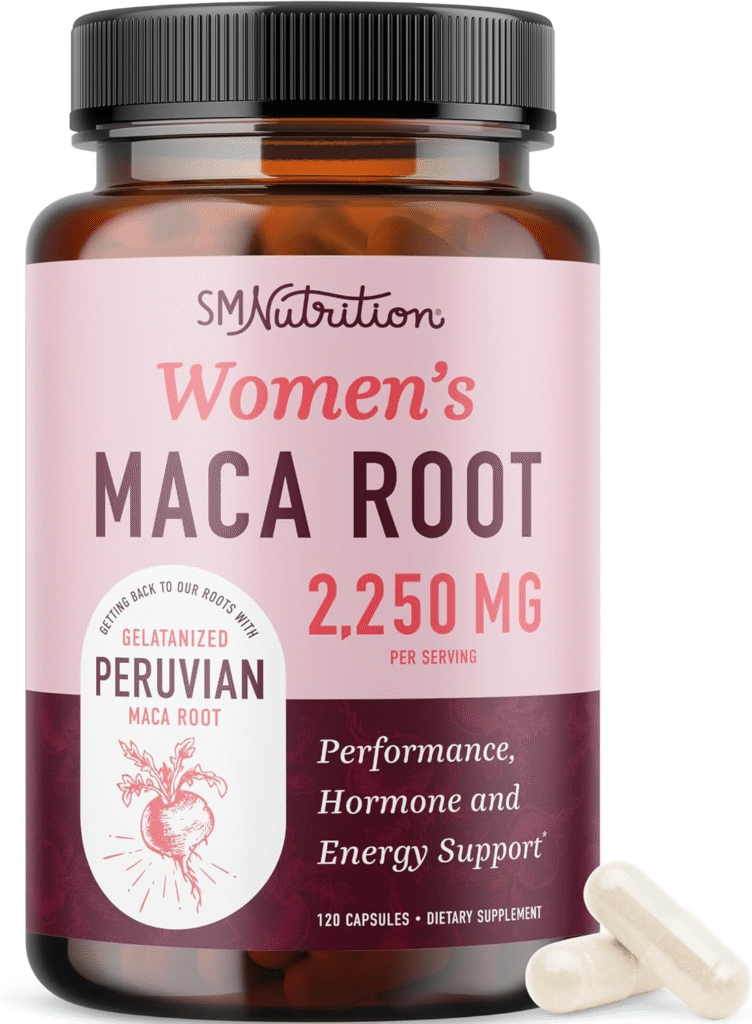The Intricate Dance of Hormones
Hormones are the body’s chemical messengers, orchestrating a complex symphony that influences nearly every aspect of our physiology. From metabolism and mood to growth and reproduction, these powerful molecules play a crucial role in maintaining our overall health and well-being.
When hormones fall out of balance, the consequences can be far-reaching and profound. As an endocrinologist with over two decades of experience, I’ve seen the transformative power of proper hormonal management.
Achieving optimal hormonal balance can lead to increased energy, improved mood, better sleep, enhanced cognitive function, and a reduced risk of chronic diseases.
Decoding the Endocrine System: Beyond the Basics
To truly master hormonal management, we must first understand the intricacies of the endocrine system. While most people are familiar with major players like thyroid hormones and sex steroids, the endocrine system encompasses a large network of glands and hormones that work in concert to maintain homeostasis.
One often overlooked aspect of hormonal health is the concept of hormone crosstalk. This refers to the complex interactions between different hormonal pathways.
For example, chronic stress can lead to elevated cortisol levels, which in turn can suppress thyroid function and alter sex hormone production.
Understanding these interconnections is crucial for developing a holistic approach to hormonal balance.
Another key concept is hormonal sensitivity. The absolute levels of hormones in your body are important, but equally crucial is how responsive your cells are to these chemical signals.
Factors like diet, exercise, and environmental toxins can all influence hormone receptor sensitivity, potentially leading to hormonal imbalances even when blood levels appear normal.
Advanced Hormone Testing: Beyond the Standard Panel
While basic blood tests can provide valuable information about hormonal status, they often fail to capture the full picture. As we explore further into hormonal management, it’s essential to consider more comprehensive testing methods.
One such approach is the Dutch Test (Dried Urine Test for Comprehensive Hormones). This advanced test measures hormone levels and their metabolites, providing insights into how your body is processing and eliminating hormones.
This can be particularly useful for identifying issues like estrogen dominance or adrenal dysfunction that might be missed by standard testing.
The Dutch Test offers several advantages over traditional blood or saliva testing:
- It provides a more finish picture of hormone metabolism, including how hormones are being broken down and eliminated.
- It allows for the assessment of diurnal cortisol patterns, giving insight into adrenal function throughout the day.
- It can help identify specific enzyme deficiencies or excesses that may be contributing to hormonal imbalances.
Another cutting-edge technique is neurotransmitter testing. While not hormones per se, neurotransmitters like serotonin and dopamine are intimately connected to hormonal balance.
By assessing neurotransmitter levels alongside hormones, we can gain a more finish understanding of the body’s chemical landscape and develop more targeted interventions.
Neurotransmitter testing can be particularly helpful for people experiencing mood disorders, sleep disturbances, or cognitive issues alongside hormonal imbalances. This comprehensive approach allows for a more nuanced understanding of the complex interplay between hormones and neurotransmitters.
Chronobiology and Hormonal Rhythms: Timing is Everything
One of the most overlooked aspects of hormonal health is the importance of timing. Our bodies operate on intricate circadian rhythms, with hormone levels naturally fluctuating throughout the day.
By aligning our lifestyle with these natural rhythms, we can improve hormonal function and enhance overall health.
Cortisol, often called the “stress hormone,” follows a distinct daily pattern. It should be highest in the morning to help us wake up and gradually decrease throughout the day.
However, chronic stress or poor sleep habits can disrupt this pattern, leading to a host of health issues.
To support healthy cortisol rhythms, consider the following strategies:
- Expose yourself to bright light upon waking to signal the start of your day.
This helps regulate your body’s internal clock and supports healthy cortisol production.
- Practice stress-reduction techniques like meditation or deep breathing in the evening to help lower cortisol levels.
Even just 10-15 minutes of mindfulness practice can have a significant impact on your stress hormone levels.
- Avoid blue light exposure from screens in the hours before bedtime, as this can suppress melatonin production and disrupt sleep.
Consider using blue light blocking glasses or apps that filter out blue light on your devices.
- Maintain a consistent sleep schedule, even on weekends.
This helps reinforce your body’s natural circadian rhythms and supports healthy hormone production.
- Time your meals appropriately.
Eating late at night can disrupt your body’s natural hormone cycles, particularly those related to metabolism and sleep.
By respecting these natural rhythms, we can create a more harmonious hormonal environment within our bodies. This can lead to improved energy levels, better sleep quality, and more balanced mood throughout the day.
The Gut-Hormone Connection: A Two-Way Street
Recent research has shed light on the profound connection between gut health and hormonal balance. The gut microbiome plays a crucial role in hormone production, metabolism, and elimination.
This gut-brain-hormone axis highlights the importance of addressing digestive health as part of a comprehensive hormonal management strategy.
For instance, certain gut bacteria are capable of producing and modifying estrogen, potentially influencing estrogen-related conditions like breast cancer and endometriosis. The gut microbiome can also affect thyroid function by influencing the conversion of T4 to the more active T3 hormone.
Additionally, the gut is home to a significant portion of the body’s serotonin production, a neurotransmitter that plays a key role in mood regulation and is intimately connected to hormonal balance. Imbalances in gut bacteria have been linked to conditions like depression and anxiety, which can both cause and result from hormonal disruptions.
To support a healthy gut-hormone relationship, consider incorporating the following:
- Consume a diverse range of fiber-rich plant foods to support a healthy microbiome.
Aim for at least 30 different plant foods each week to promote microbial diversity.
- Include fermented foods like kefir, sauerkraut, and kimchi to introduce useful bacteria.
These probiotic-rich foods can help support a healthy gut lining and improve nutrient absorption.
- Consider targeted probiotic supplementation, particularly strains that have been shown to support hormonal health.
Look for probiotics containing Lactobacillus and Bifidobacterium species, which have been associated with improved hormone metabolism.
- Minimize exposure to antibiotics and other substances that can disrupt the gut microbiome.
When antibiotics are necessary, be sure to support your gut health with probiotics and prebiotic foods during and after treatment.
- Address any underlying gut issues such as leaky gut syndrome or small intestinal bacterial overgrowth (SIBO), as these can significantly impact hormone balance.
- Include plenty of prebiotic foods in your diet, such as garlic, onions, leeks, and Jerusalem artichokes.
These foods provide nourishment for useful gut bacteria.
- Consider incorporating bone broth or collagen supplements to support gut lining integrity, which is crucial for proper nutrient absorption and hormone metabolism.
By nurturing a healthy gut microbiome, we can create a solid foundation for hormonal balance and overall well-being.
Environmental Endocrine Disruptors: Hidden Hormonal Saboteurs
In our modern world, we are constantly exposed to a myriad of environmental toxins that can disrupt hormonal balance. These endocrine disruptors can mimic, block, or interfere with our natural hormones, potentially leading to a wide range of health issues.
Some common sources of endocrine disruptors include:
- Plastics containing BPA and phthalates: These chemicals can leach into food and beverages, particularly when exposed to heat.
- Pesticides and herbicides used in conventional agriculture: Many of these chemicals have estrogenic properties and can accumulate in the body over time.
- Personal care products containing parabens and other synthetic chemicals: These can be absorbed through the skin and disrupt hormone function.
- Non-stick cookware coated with PFOA: When heated, these coatings can release chemicals that interfere with thyroid function and metabolism.
- Flame retardants found in furniture and electronics: These persistent organic pollutants can accumulate in the body and disrupt thyroid and reproductive hormones.
To minimize your exposure to these harmful substances:
- Choose organic produce when possible, especially for items on the “Dirty Dozen” list.
This reduces your exposure to hormone-disrupting pesticides and herbicides.
- Opt for glass or stainless steel containers instead of plastic for food storage.
When plastic is necessary, avoid heating it or storing hot foods in it.
- Use natural, fragrance-free personal care products.
Look for products certified by organizations like the Environmental Working Group (EWG) that are free from known endocrine disruptors.
- Filter your drinking water to remove potential contaminants.
Consider a reverse osmosis system or a high-quality carbon filter to remove a wide range of pollutants.
- Regularly dust and vacuum your home to reduce exposure to flame retardants.
Use a vacuum with a HEPA filter to capture fine particles.
- Choose organic, natural fiber clothing and bedding when possible to reduce exposure to pesticides and chemical treatments.
- Be mindful of your seafood choices, opting for low-mercury options to reduce exposure to this potent endocrine disruptor.
- Consider using natural cleaning products or making your own with ingredients like vinegar, baking soda, and essential oils.
By taking steps to reduce your exposure to environmental endocrine disruptors, you can significantly support your body’s natural hormonal balance and overall health.
Adaptogens and Phytotherapy: Nature’s Hormonal Helpers
Adaptogenic herbs have gained popularity in recent years for their ability to help the body adapt to stress and support overall hormonal balance. These powerful plants work by modulating the stress response and supporting the HPA (hypothalamic-pituitary-adrenal) axis.
Some of the most well-researched adaptogens include:
- Ashwagandha: Known for its ability to lower cortisol levels and support thyroid function.
Studies have shown that ashwagandha can help reduce stress and anxiety while improving sleep quality.
Try this product form Amazon: Dr. Mercola Organic Ashwagandha

- Rhodiola: Helps combat fatigue and supports cognitive function under stress.
It’s particularly useful for enhancing mental performance and reducing symptoms of burnout.
Try this product from Amazon: DEAL SUPPLEMENT Rhodiola Rosea

- Holy Basil: Supports healthy blood sugar levels and may help balance cortisol.
It’s also known for its anti-inflammatory and antioxidant properties.
Try this product from Amazon: Herbal Secrets Holy Basil Supplement

- Maca: Traditionally used to support hormonal balance, particularly for women.
It may help reduce menopausal symptoms and support libido.
Try this product from Amazon: SM Nutrition Organic Maca Root Capsules for Women

- Schisandra: Known for its liver-protective properties, which can indirectly support hormone balance by enhancing the body’s ability to metabolize and eliminate hormones.
Try this product from Amazon: Prominent Nutrition Schisandra

- Eleuthero: Also known as Siberian ginseng, this adaptogen can help improve energy levels and support adrenal function.
Try this product from Amazon: Nutricost Siberian Eleuthero

- Cordyceps: A medicinal mushroom that can help support adrenal function and may have useful effects on testosterone levels.
Try this product from Amazon: FreshCap Mushrooms Cordyceps

When incorporating adaptogens into your routine, it’s important to choose high-quality supplements and to cycle their use to prevent tolerance. Always ask with a healthcare professional before starting any new supplement regimen, especially if you have pre-existing health conditions or are taking medications.
Here are some tips for using adaptogens effectively:
- Start with one adaptogen at a time to assess your body’s response.
- Begin with a low dose and gradually increase as needed.
- Be patient – adaptogens often work subtly over time, and it may take several weeks to notice significant benefits.
- Consider rotating different adaptogens to prevent tolerance and target various aspects of hormonal health.
- Combine adaptogens with lifestyle changes like stress reduction techniques and proper nutrition for most benefit.
- Look for standardized extracts to ensure consistent potency and efficacy.
By incorporating adaptogens into a comprehensive hormonal management plan, you can harness the power of nature to support your body’s resilience and balance.
Hormonal Optimization: Personalized Strategies for Success
While general guidelines can be helpful, true hormonal optimization needs a personalized approach. What works for one person may not be effective for another because of differences in genetics, lifestyle, and environmental factors.
Some key considerations for developing a personalized hormonal management plan include:
- Genetic testing to identify potential SNPs (single nucleotide polymorphisms) that may affect hormone metabolism.
For example, variations in the MTHFR gene can impact estrogen metabolism and methylation processes.
- Comprehensive hormone and neurotransmitter testing to establish a baseline and track progress.
This may include advanced testing methods like the Dutch Test mentioned earlier.
- Detailed assessment of lifestyle factors, including diet, exercise, sleep patterns, and stress levels.
Each of these elements can significantly impact hormonal balance and should be addressed in a personalized plan.
- Evaluation of environmental exposures and potential endocrine disruptors.
This may involve testing for heavy metals or other toxins that could be interfering with hormone function.
- Consideration of life stage and specific hormonal challenges (e.g., perimenopause, andropause).
Hormonal needs change throughout life, and strategies should be adjusted accordingly.
- Assessment of gut health and microbiome composition, given the strong connection between gut function and hormonal balance.
- Evaluation of nutrient status, particularly for vitamins and minerals that play crucial roles in hormone production and metabolism (e.g., vitamin D, zinc, magnesium).
- Consideration of past medical history and any current health conditions that may be impacting hormonal balance.
By taking a holistic, personalized approach to hormonal management, we can develop targeted strategies that address the root causes of imbalance and support optimal health. This may involve a combination of dietary changes, targeted supplementation, stress management techniques, and in some cases, bioidentical hormone replacement therapy under careful medical supervision.
Remember that hormonal balance is not a static state but a dynamic process that needs ongoing attention and adjustment. Regular follow-up and testing can help ensure that your hormonal management plan stays effective and appropriate for your changing needs.
Key Takeaways for Mastering Hormonal Health
- Understand the complex interplay between different hormonal systems and the importance of a holistic approach.
- Utilize advanced testing methods to gain a comprehensive understanding of your hormonal landscape.
- Align your lifestyle with natural circadian rhythms to support healthy hormonal function.
- Recognize the crucial role of gut health in hormonal balance and take steps to support a healthy microbiome.
- Minimize exposure to environmental endocrine disruptors and support your body’s natural detoxification processes.
- Consider the judicious use of adaptogenic herbs and other natural therapies to support hormonal health.
- Develop a personalized approach to hormonal optimization based on your unique needs and circumstances.
Frequently Asked Questions
What are the main hormones in the human body?
The main hormones in the human body include insulin, cortisol, thyroid hormones (T3 and T4), estrogen, progesterone, testosterone, growth hormone, and melatonin. Each plays a crucial role in various bodily functions and maintaining overall health.
How can I naturally balance my hormones?
Natural ways to balance hormones include maintaining a healthy diet rich in whole foods, getting regular exercise, managing stress through techniques like meditation or yoga, ensuring adequate sleep, and avoiding environmental toxins. Some people also find benefits from adaptogenic herbs or specific supplements under professional guidance.
What foods help balance hormones?
Foods that can help balance hormones include fatty fish rich in omega-3s, leafy greens, cruciferous vegetables, healthy fats like avocados and nuts, and fermented foods that support gut health. Avoiding processed foods, excess sugar, and alcohol can also be useful for hormonal balance.
Can stress affect hormone levels?
Yes, stress can significantly impact hormone levels. Chronic stress can lead to elevated cortisol levels, which in turn can disrupt the balance of other hormones like thyroid hormones and sex hormones.
Managing stress is crucial for maintaining overall hormonal health.
What is adrenal fatigue?
Adrenal fatigue is a term used to describe a collection of symptoms that some believe result from chronic stress and overworked adrenal glands. While not recognized as a medical diagnosis, many people experience symptoms like fatigue, difficulty handling stress, and mood changes that they attribute to adrenal issues.
How does the thyroid gland affect overall health?
The thyroid gland produces hormones that regulate metabolism, energy production, and many other bodily functions. Thyroid imbalances can lead to a wide range of symptoms affecting energy levels, weight, mood, and overall health.
What is the role of insulin in hormone balance?
Insulin is a crucial hormone that regulates blood sugar levels and affects metabolism. Insulin resistance or imbalances can lead to weight gain, increased risk of type 2 diabetes, and can disrupt the balance of other hormones in the body.
How do hormones change during menopause?
During menopause, there’s a significant decrease in estrogen and progesterone production. This can lead to various symptoms like hot flashes, mood changes, and changes in bone density.
Other hormones like thyroid hormones and cortisol can also be affected during this transition.
Can exercise help balance hormones?
Regular exercise can have a positive impact on hormone balance. It can help regulate insulin levels, reduce stress hormones, and support the production of growth hormone and testosterone.
Both cardiovascular exercise and strength training can be useful for hormonal health.
What is the connection between sleep and hormone balance?
Sleep plays a crucial role in hormone regulation. Many hormones, including growth hormone and melatonin, are produced during sleep.
Poor sleep can disrupt cortisol rhythms and affect hormones that regulate appetite and metabolism.
Prioritizing good sleep hygiene is essential for maintaining hormonal balance.
Disclaimer
The information contained in this post is for general information purposes only. The information is provided by Mastering Your Hormones: Expert Strategies for Optimal Balance and while we endeavor to keep the information up to date and correct, we make no representations or warranties of any kind, express or implied, about the completeness, accuracy, reliability, suitability or availability with respect to the website or the information, products, services, or related graphics contained on the post for any purpose.

